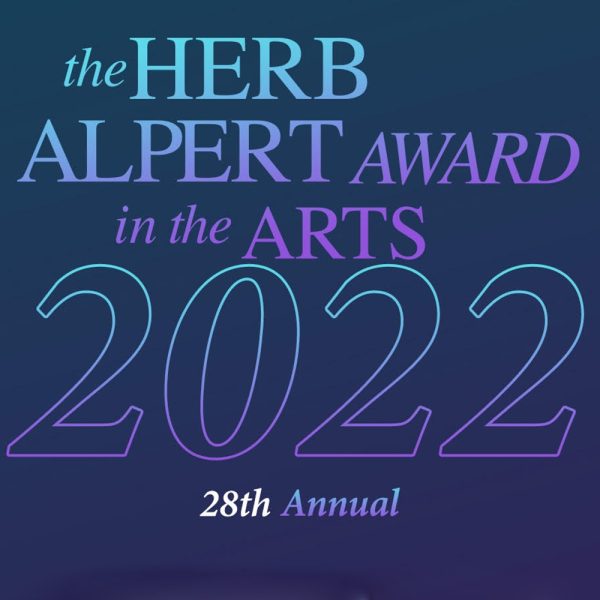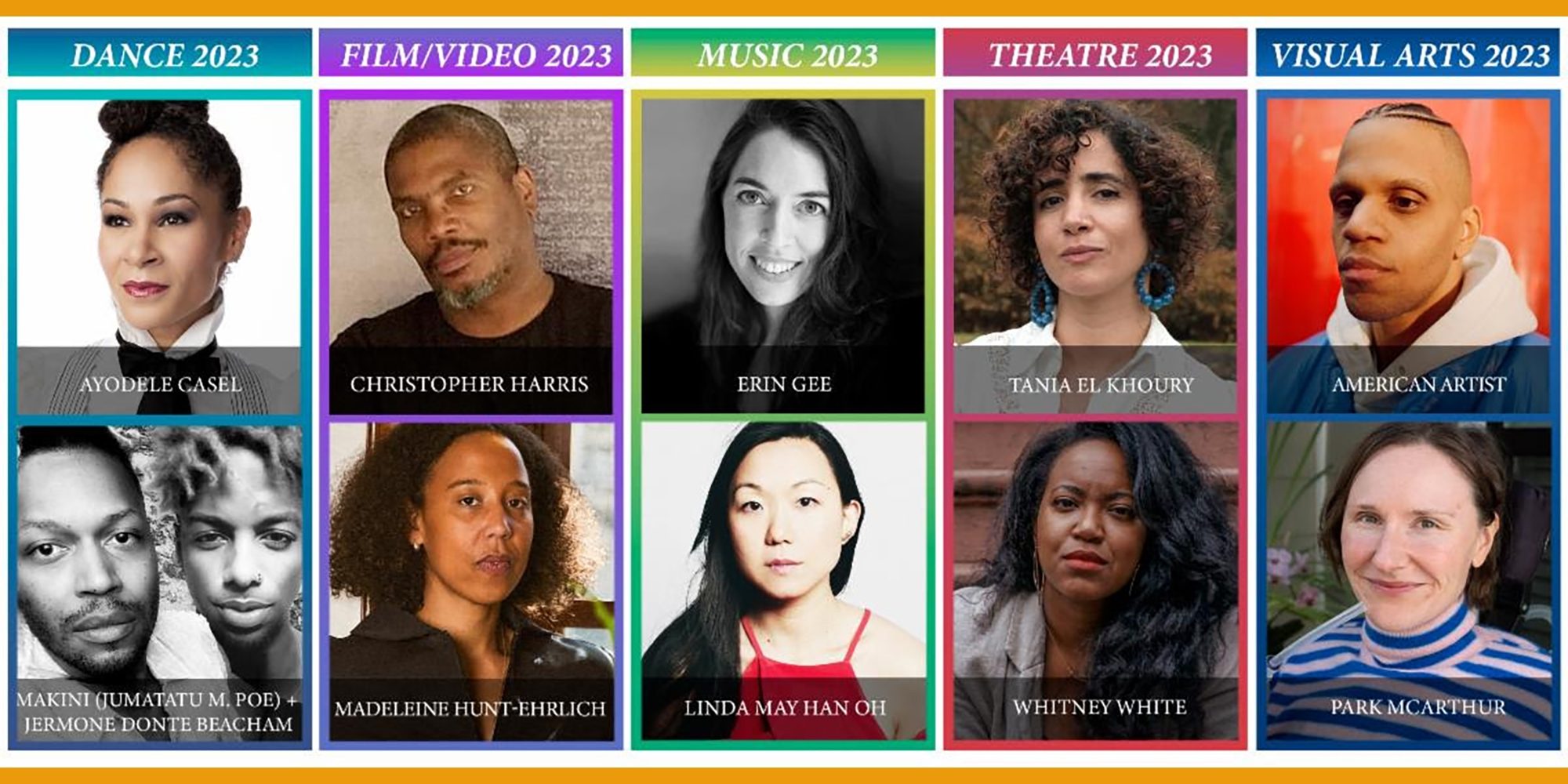Herb Alpert is not only one of the greatest living American popular music maestros of our time, still touring at age 88, and cranking out a new album every year. He is also one of our country’s most generous philanthropists for the arts. For the past 29 years, the Herb Alpert Award in the Arts has granted $75,000 to selected artists in dance, film, video, music and theater. Since the pandemic, and the hard times artists face in these challenging times, he has offered not one but two awards in each category.
The 2023 winners are as follows:
- DANCE: Ayodele Casel, Makini (jumatatu m. poe), Jermone Donte Beacham
- FILM/VIDEO: Christopher Harris, Madeleine Hunt-Ehrlich
- MUSIC: Erin Gee, Linda May Han Oh
- THEATRE: Tania El Khoury, Whitney White
- VISUAL ARTS: American Artist, Paul McArthur
Winners are chosen each year by a panel, often including past winners (there are 164!). So when they were announced last week, Afropop’s Banning Eyre reached Herb at home in Los Angeles with Zoom. Neither of them knew much about the individual winners. No matter. They had plenty to talk about. Here’s their conversation.
Herb Alpert: Holy god, man, to get into this Zoom was like Fort Knox, man. I was going on my iPad at first, and I'm not a Zoom member on iPad. But here I am.
Banning Eyre: Technology. We’ve got to love it, eh? We're stuck with it.
We're not only stuck with it. I mean, AI is around breathing around the corner, and that's some scary s*&% there.
It is, but it's powerful. I just tried ChatGPT for the first time yesterday, asking it questions about Tanzanian music, and it was coming up with brilliant information, unbelievably detailed stuff about fairly obscure artists. I was impressed. There's an upside, but you're right. It's also scary.
Anyway, it's great to see you again. I'm glad to hear you're getting back on the road. That's exciting.
I've been doing it for the last 13 years. Yeah, but getting back… We had a little hiatus because of the COVID. Now we’re making up a lot of these concerts that we had to cancel. We canceled Ronnie Scott's in London for three years in a row, and they've been sold out for three years.
They're going to have to have you there for a month.
Well, it’s on my bucket list. I just want to do it, and we're doing it. Lani is not crazy about flying to London, but we're going to do it.
You mentioned last time that she's cautious about things. I guess art is always a risk, right?
Art is a risk, but she has a phrase that covers everything: Is it worth the risk?
I guess that's the essential question.
O.K. What do you want to interrogate me about?
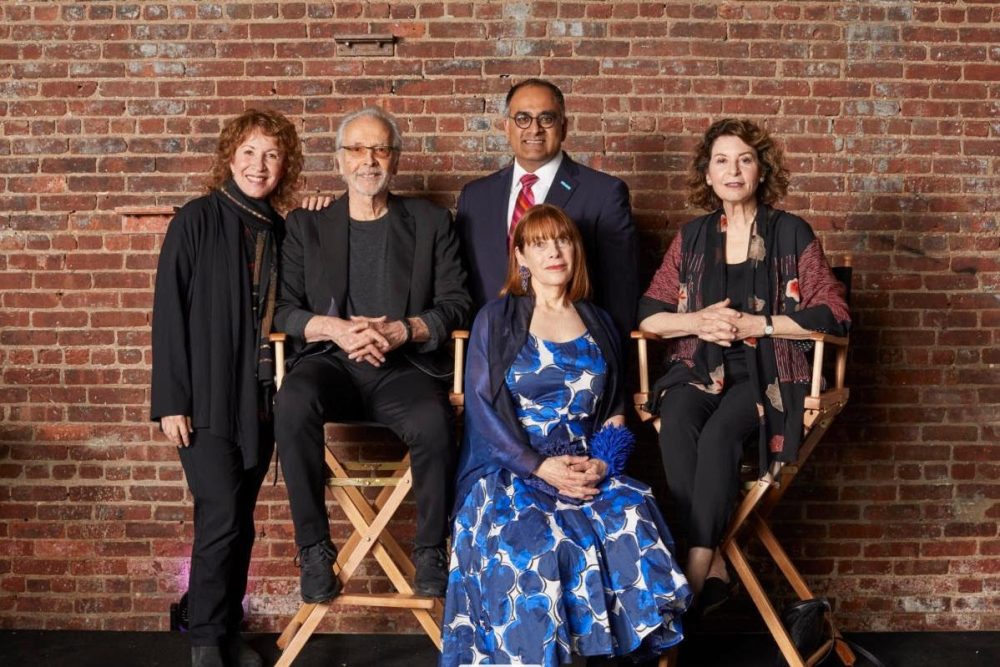
Well, let's see. I've just looked at the awardees for this year, and they're not folks that I'm familiar with, so I won’t ask you about them specifically. We’ve talked about these awards a couple of times, and I understand your philosophy, your advocacy for artists who follow the “road less taken.” The procedure is for your panel, not you, to make the choices. But one thing strikes me as a bit of a paradox. Your music is so accessible. You were a Top 40 guy when I was young. You appeal to a much more of a mass audience than most of these awardees. They tend to be experimental. Genre breakers. Their work seems very different in character from yours.
Well, you kind of point out my dilemma, because having a hit record and having sold 72 million records puts me in a slot. I'm a jazz musician, basically, but you can't think of me like that anymore because of “The Lonely Bull” and “Tijuana Taxi” and all those other songs. I'm in this niche that is hard to get out of. I'm a right-brain guy. I love jazz. I'm not a bebopper, but I'm a jazz musician at heart.
Sure.
And I always love the road less traveled with musicians. I remember when I was in high school… No, actually I was in grammar school and junior high. There were two guys. One guy used to make little models of creatures and he would electrify them somehow they would move and blah, blah, blah. And the other guy was a classical buff. I mean, he wasn't into football, he wasn't into basketball or any of the sports, but he loved classical music. Man, he could talk to you hours about all the great composers.
It was his passion and I didn't realize it at the time. I kind of looked at him like, “What an oddball. Man, the guy is in the classical world by himself.” But yes, he was by himself. He was passionate about what he was doing. And this other guy with the little models was equally as passionate. And I kind of gravitate towards that element. And the winners for the last 29 years have been those artists that, you know, they're not in it for the money. They're not in it for notoriety or anything else. They're in it because that's what they have to do. They’re passionate.
Those are the artists I really love. I think they deserve to be helped. As I’ve said before, I think music and the arts, I mean, they're the heartbeat of our soul, of our country. So we need them. We need more people to support them. When I started the foundation in the early ’80s, one of my dreams was: if I can do it, you can do it. That really didn't come true that way. But that was my thought.
It's interesting that you contemplate this paradox, this dilemma, as you call it. So I guess we can't expect a Herb Alpert free jazz album coming out anytime soon, right?
I'm not a free jazz type of artist. I guess it was Duke Ellington who said something about jazz. I remember someone asked him, “What is bebop?” He said, “Well, bebop is like playing Scrabble without the vowels.”
That's fantastic. I’ve never heard that before.
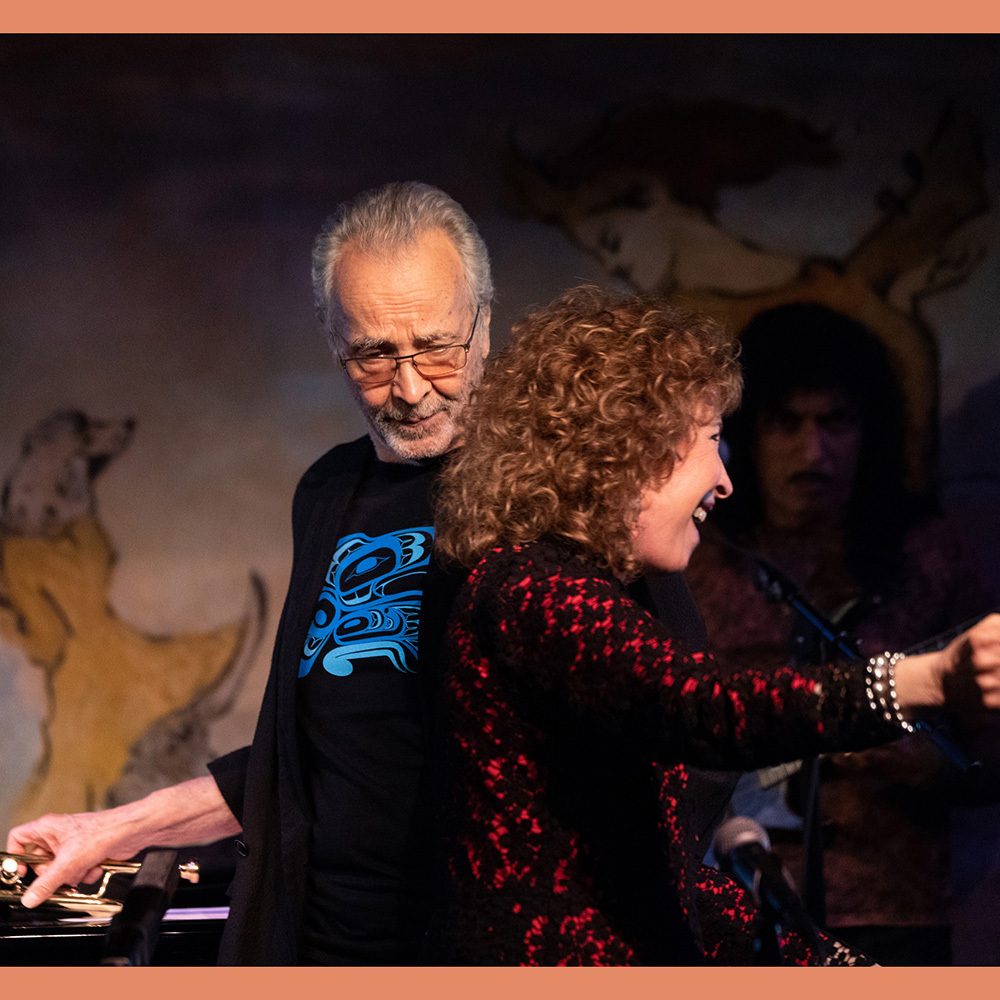
So I like these artists that just do their own thing. And yeah, it's good to push boundaries. I mean, God, we need that. We need it in every realm.
And of course it's harder and harder for artists outside the mainstream to make it work. The industry has changed so much, and these days, some people are still hesitant to come out to concerts. It's been something of a struggle in New York for the international artists that we deal with. They tend to appeal to an older audience, and many are still a bit reluctant to come out.
Anyway, I look forward to learning more about this year’s awardees. I’ve got some learning to do. I don’t know their work.
I don't either, because I'm not involved in the in the picking. But we’re having a big party, Zoom party on May 3rd, and I'll get to meet all these artists in person, over Zoom. Some of them will do a little performance. It's kind of different than it used to be. We used to do it live and fly everyone in. For some strange reason it works on Zoom. It's still personal. It still has a feeling.
So I'm happy we're saving some money, and we've returned that money back into the awards. It was originally for five artists, and now we’ve doubled it because of COVID. Artists are struggling a little more than usual. We turned it into 10 artists, actually 11 this year, since we’re doing it in tandem with another artist. So eleven artists, but 10 awards.
I really appreciate all the beautiful things people have said about the program, and it's a good feeling to give back. For me there was no need to buy a Van Gogh or a Monet hanging on my wall for my own gratification. I thought I could do something useful with the money because I've been so lucky since I was eight years old to have this.
You’ve told the story often about picking up a trumpet from a table of instruments when you were a kid.
That program at my grammar school changed my life completely. I've had an amazing career, not only as a musician, but as a painter and sculptor, all because of that trumpet. It was speaking to me when I was eight years old, because I'm an introvert. This trumpet was just like, it had my voice.
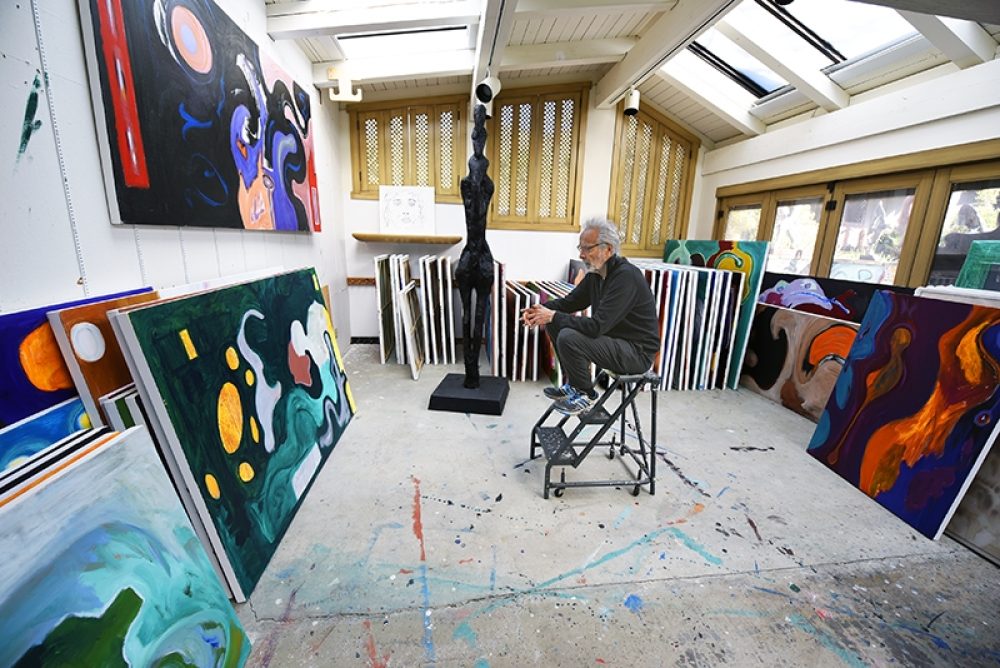
By the way, is that one of your paintings on the wall behind you?
Yes.
Well, you don’t need Van Gogh or Monet. You can create your own. I really enjoyed seeing your large sculptures in New York a few years back. They’re fantastic, but they’re quite abstract. Do you think they come from a different part of your brain than the music?
No, it comes from the same part of my brain. They’re of the moment. And lately, now that I'm an elder statesman, I've been thinking something that I've always felt, but I never exposed it because it just sounds so self-serving. But I don't make art, music or anything for anybody else but me. I do it for me.
I love this whole process. I have a Logic program here, and I record. I'm the engineer. I can mix things and do all sorts of exotic things with that program because I want to keep my brain active. I have nine sculptures at the Field Museum in Chicago. I remember going there the last time, thinking, “Wow. How in the hell did he do this?” I had no idea how. I mean, in retrospect, yeah, sure, I can break it down, but when I see it, I'm like an audience to my own stuff. It's kind of an interesting feeling.
I know it sounds strange, but that's the way I feel about the music. I remember listening to the Whipped Cream and Other Delights album in the studio when it was finished. And from top to bottom, I was just sitting at the console listening to this music, and at the end of it, I said, “Man, that's good. That's really good. I like that feeling.” That's one of the things that an artist should have. If you don't like what you're doing, why should anyone else like it?
I relate to that. I'm a guitarist and I've done a lot of collaborative work. But finally now, at the age of 66, I'm working on my first solo album, just on my own guitar stuff. And it's kind of what you're saying. This is music that I made sitting alone with my guitar during the pandemic and writing instrumental pieces to amuse myself. So now I'm recording them. But I'm quite critical of my own work. I hope I'll have that feeling that you had from Whipped Cream when it's all done.
You got to be careful of that one, being too in your head. You can't be critical. You could just feel it. Being critical means: is it in tune, out of tune, and did I make a mistake over here? There is where you get into trouble if you're dealing with zeros and ones, you got umpteen different combinations of things you could do to rectify that problem. But you just might take the heart and soul out of that thing by doing it.
Wasn’t it Jack Kerouac who talked about “the sanctity of the first draft” when he was talking about writing. There’s something to that. Sometimes you come up with an idea and it just sings, and then you try to perfect it and get in the studio and suddenly it's flat. That’s good advice, Herb.
That's why jazz is such a great art form. I mean, there's no doubt that Miles Davis was one of the greatest jazz artists of all time. He was of the moment. He didn't give a darn whether you liked it or not. He was into himself. He was into what he was doing and how he was doing. And he was brilliant. He made great choice of musicians that surrounded him. Perfection wasn't the criteria. That wasn't the thing he was going for. I think it all breaks down to one thing. Whether you're a painter, sculptor, musician, poet, actor, it's all about a feel.
That's all it is. It's a feeling, man. That's why we like Billie Holiday and those people that don't sing in tune. O.K., she's a little off there, but there's a feeling there that nails you. And that's the goal.
That is the goal.
But it's all personal. What feels great for one might not feel great for another. It has to feel great for the person who's making it, who's doing it. You look at a movie and you see an actor that isn't particularly good looking, but they have something that you can't take your eyes off of.
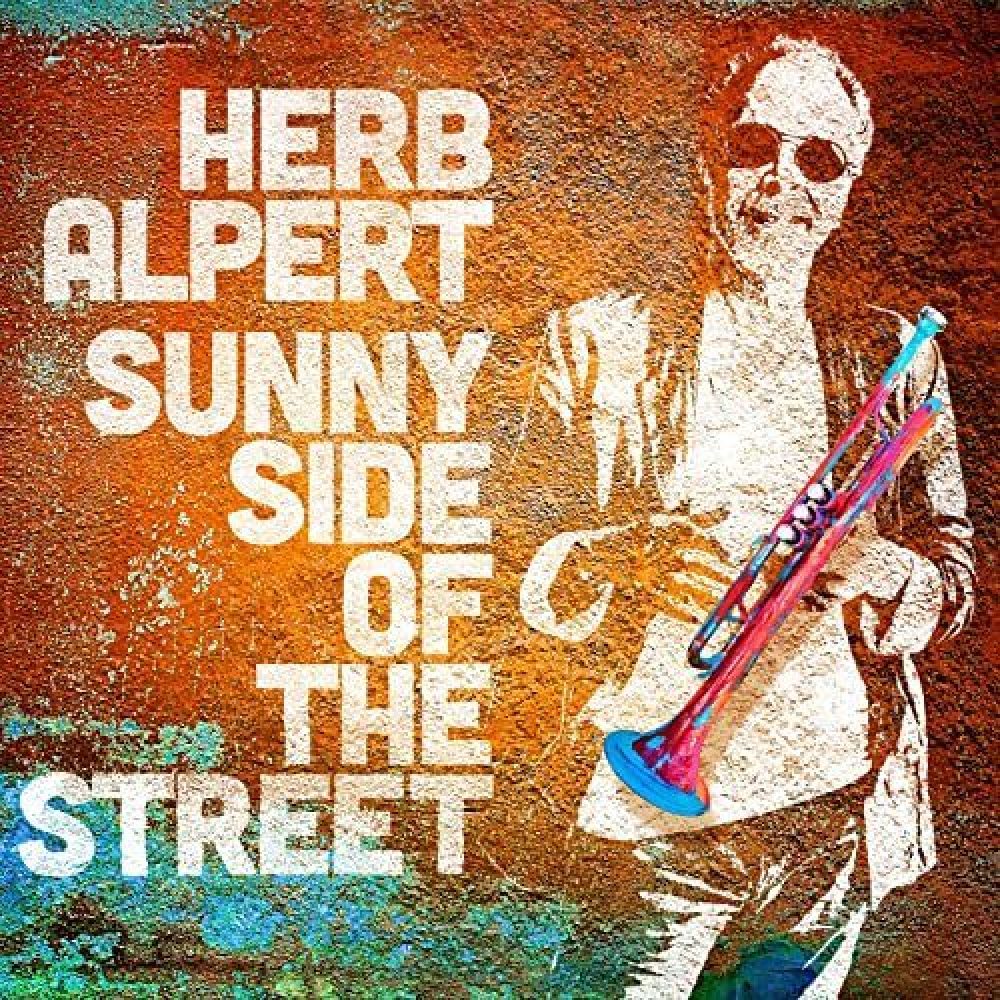
You had an album the last year, The Sunny Side of the Street. Is that your most recent one?
That's the one.
But you're working on another one, no doubt.
Not working on. It's finished. It's coming out. But there's a delay when things come out nowadays. It's not like the old days. I did things that are really good in this new one.
Do you want to tell me about a couple of the songs?
I did a couple of off-the-wall things. Did you ever see Smokey and the Bandit?
A long time ago. Yeah.
There is a song in there that I couldn't get out of my brain. So I recorded it. That'll come out later this year.
Did you record this album the same way we talked about: the way you did the last couple of albums, with the zeros and ones and the sending tracks back and forth among the musicians? You're not gathering musicians physically together?
Not for recordings, just in concerts. We're all playing together.
With the same quartet?
Well, unfortunately, our original drummer passed away.
You mentioned that last time. Very tough.
But other than that, it's the same group, and it's really special. I know people dig it because I'm flooded with letters and people excited to see me. This is not a victory tour for me. I know what I'm sending out. I'm sending out a positive energy to people, and they're picking up on it. As you know, we do a Tijuana Brass medley and Lani does a Brazil 66 medley. But in between, that is stuff that you didn't expect, and there's visuals with it now. We have a very subtle tribute to my dear friend Burt Bacharach and a little tribute to Karen Carpenter. But it's very subtle. It's uplifting stuff.
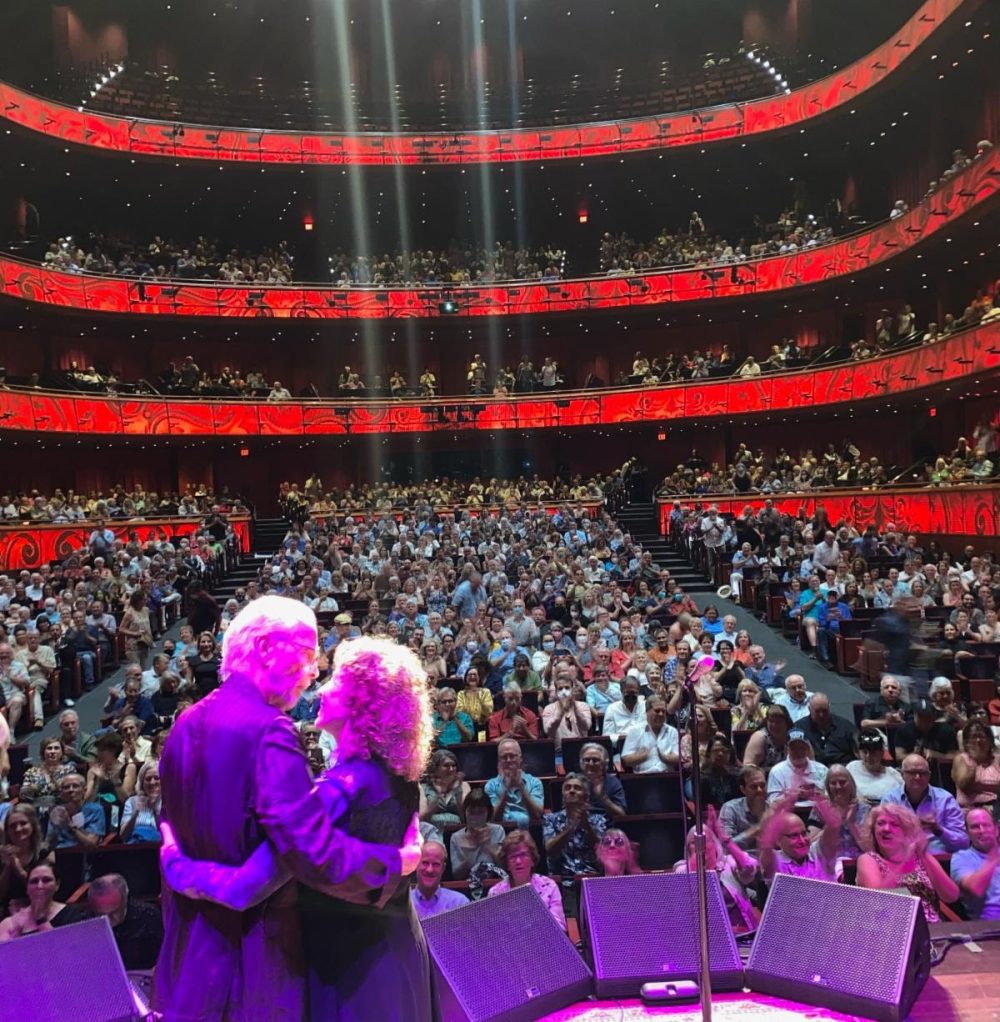
I saw that press photo of its shot of you and Lani from behind in this huge audience. Where was that?
Oh, man. We've had a few of those big venues. That one I think was in Charlotte, but we've played some really extraordinary places.
I have seen you and this group at the Café Carlyle in New York, a very intimate setting. I'm sure it's a whole different vibe when the venue is big. This picture reminds me of when I was young and I was a huge fan of your records because my mother played them. I must have been 10 or 11 years old when you played a big stadium show in Montreal. I remember reading the review in the Montreal Gazette, how the band came out in some kind of vehicle onto the field, and it just thrilled me. I was like, “God damn, I wish I was there!”
Did you smoke grass in those days or what?
Probably not quite yet.
Yeah, that was the Tijuana Brass. Yeah, I've had an interesting run, from picking up a trumpet out of a bunch of instruments around a table. I always relate to that in terms of my charitable work. I feel like I had an opportunity that a lot of people don't have these days because I don't think our politicians understand the beauty and the strength of musicians.
It's tragic the way music education has been devalued.
It's nonexistent. And that’s the thing that's keeping us down, we can't get above where we need to go.
We just did our first trip back to Africa since the pandemic. We spent a few weeks in Tanzania checking out musicians in Dar Es Salam, and we went to this fabulous festival in Zanzibar where a lot of young musicians were creating interesting fusions of local traditional music, which is very rich and complex, with jazz and hip-hop and rock. It was inspiring, but I realize that they're kind of a minority across the continent. Because of the sort of electronic approach to music these days, fewer kids are learning to play instruments anymore, traditional instruments or even guitars and horns. It's a big concern, especially for older musicians. It's a battle everywhere.
You're getting a taste of that internationally through TikTok and some of these other outlets. It's strange. This is almost embarrassing, but somebody on TikTok picked up the song I did in the Whipped Cream album, which I did 60 years ago. It's called “Ladyfingers,” and it was written by the famous jazz guitar player who also played harmonica, Toots Thielman. He wrote the song. Anyway, some kid picked it up and it went viral on TikTok. 180,000 hits on that song. I mean, it's unbelievable.
I have to ask you about Harry Belafonte, who passed last week. Afropop was lucky to have had a nice relationship with him. Sean Barlow collaborated on a show at the Kennedy Center in the late ‘90s where Harry was bringing together some of his favorite African musicians. It was called African Odyssey. And ever since then, he's been a good friend to us, a great supporter of our work. We honored him at a gala 15 years ago, so we were really feeling it when he passed. I wonder if you have any particular memories of this great man.
Well, I share your feelings. I had the same feeling when he passed. I was in contact with him last year or two years ago. I asked him if he would be on the board of the Harlem School of the Arts. He didn't want to but he accepted. He was not there physically, but I wanted his name on that board because he meant so much to me. He was just a good guy. He was real. He was the type of person you'd want as a friend. And I loved him. I just adored him. He was active, he was smart, he was sensitive. He was everything.
And when you really dig back into the things he did musically, he was pretty darn good. He had a nice little feel and a good choice of songs. And he was fabulous in concert. He had the ladies throwing their underwear at him.
My mother was a big fan. I always feel a certain sense of pride that when I was born in 1956, his album Calypso was the number one record in America. I always take that as a good sign. Just this morning on the radio, I heard a local Connecticut public radio reporter, Diane Orson, who is a professional musician and who toured in Harry's band in the late ‘70s. She played a couple of clips of him performing with that band in 1979, and boy, it was great. There was “The Banana Boat Song,” of course, but also “Zombie Jamboree,” which he was playing at breakneck speed. It was just amazing.
Yeah, nobody like him. He was special.
Did you work with him?
I didn't work with him, but I knew him through the time I recorded Letta Mbulu, the famous South African singer. Letta was on his show for a long period of time. She always had really nice things to say about him.
So when do you head back out on the road again?
The 12th of May. We end up in Montreal.
That’s where I grew up and fell in love with the Tijuana Brass, back in the late ‘60s. You know, Herb, Afropop Worldwide is in our 35th year now. We’ve been through a lot, but it’s a good feeling to still be in the game. In your case, it's absolutely extraordinary.
You know, I did this album I did with Hugh Masekela.
Oh, yes, we talked about that one time. I love that album. “Skokiaan”!
“Skokiaan” is one of my favorite things I did with Hugh. I loved Hugh, man. He was fun to play with. He was like, unpredictable, but fabulous. I mean, he had his own thing.
You knew him in his wild man years. I met him later when he was a more sober character, but still a lot of fun. Very funny.
Well, he was an interesting guy. He was intelligent. He was involved. Then there was the trombone player Jonas Gwangwa.
Yes, he died just a couple of years ago.
Yeah, but, man, when he played a solo, it was like a wild elephant in the jungle. It was fabulous. Beautiful guy. Beautiful guy. So that's the story.
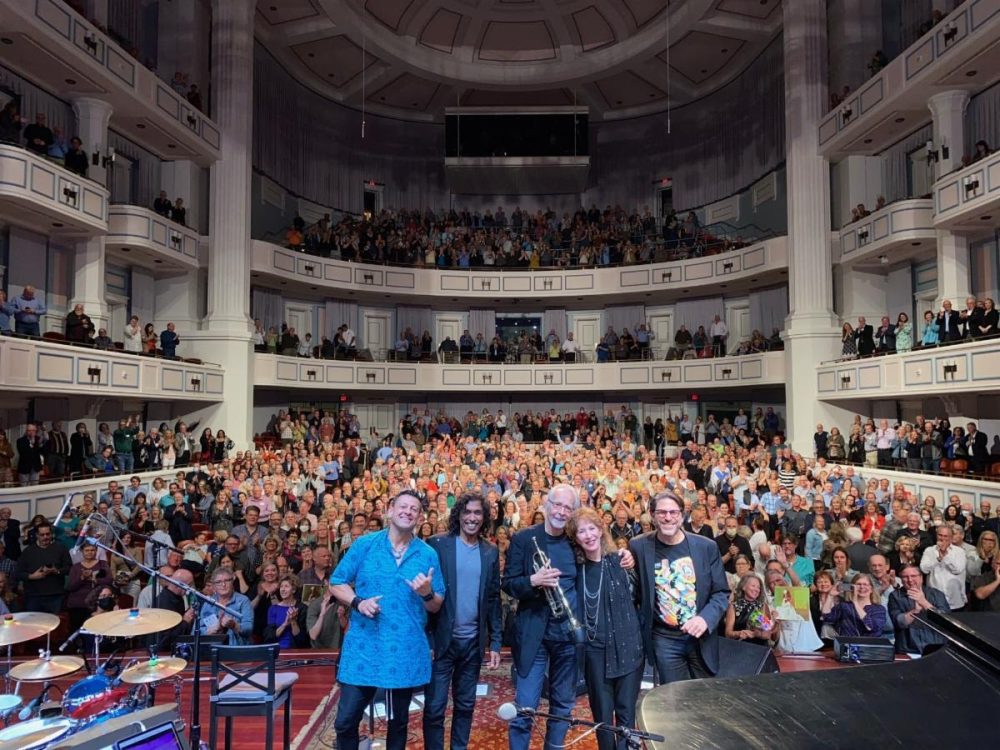
Well, it's really great to talk to you again. Our host, Georges Collinet, whom you met one time, sends his best. He always talks about you. And congratulations on the awards, the album and the coming tour. We will look for you at the Café Carlisle in November.
You got it. Be careful of overanalyzing your stuff.
I appreciate the advice. I will take that to heart.
Well, think about it, because I've seen it happen. The way we recorded in the ‘60s with live musicians, in three hours we’d record three things or four things. Now everybody's lint-picking these things and they have 18 million tracks to fool around with and they have drums on 37 tracks and they don't know how to mix it because they've got too many options. At my age now, I'm boiling it down, man. It's all about a feel. Nobody cares what kind of echo chamber you're using or all the other doodads.
I told you the story about Sam Cook. When Sam showed me a lyric that he wrote, I looked at it and I thought it really couldn't be any cornier. And I asked him to what does the song sound like? He picked up his guitar, started playing this same corny lyric, and I was thinking myself, Holy s%&^, man. He turned into something special.
“What a Wonderful World.”
It ain't what you do; it’s how you do it.
Amen. Beautiful. Well, thanks, Herb. Best to Lani and good luck on the tour, and we'll look for you in New York.
I look forward to it. Oh no, I don't look forward to it, man. My life is going so fast. I can't believe it's four months gone of the year already.
A third of the year, just like that. Unbelievable. Be safe.
You too, man.
Love you.
Love you, too.
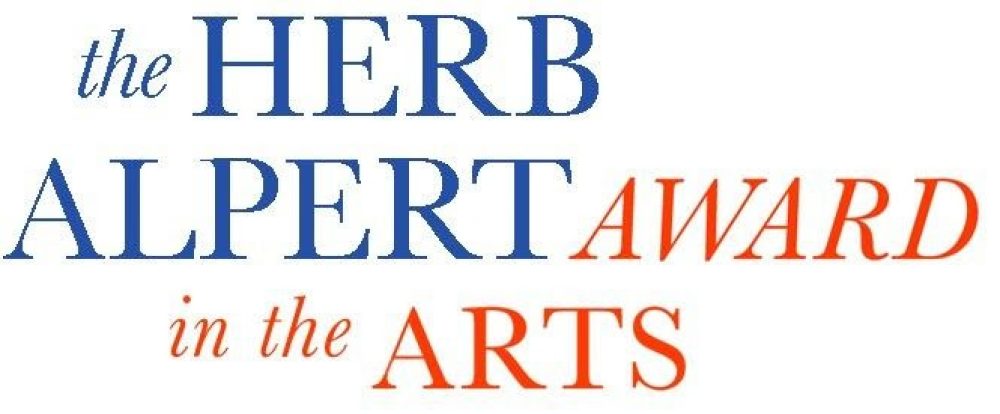
#herbalpert #herbalpertawardinthearts #afropopworldwide #lanihall #banningeyre #hughmasekela #harrybelafonte #tijuanabrass
Related Articles
